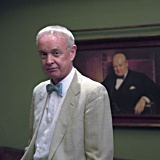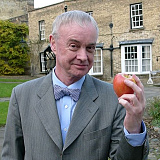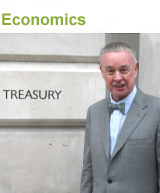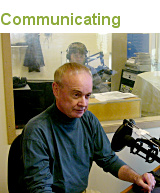 I read a list (via Dave Ramsay) of daily actions that separate ‘the rich’ from ‘the poor.’ It’s an intriguing list from RichHabits.net, but there are questions about it first. I wonder what counts as ‘rich’ and ‘poor.’ Is this the top decile of income versus bottom decile? Or does it include property? I also want to know how some of the information is arrived at. Have there been surveys that show that “6% of the wealthy say what’s on their mind vs. 69% for poor?” I am not challenging the information, only wondering how it was arrived at.
I read a list (via Dave Ramsay) of daily actions that separate ‘the rich’ from ‘the poor.’ It’s an intriguing list from RichHabits.net, but there are questions about it first. I wonder what counts as ‘rich’ and ‘poor.’ Is this the top decile of income versus bottom decile? Or does it include property? I also want to know how some of the information is arrived at. Have there been surveys that show that “6% of the wealthy say what’s on their mind vs. 69% for poor?” I am not challenging the information, only wondering how it was arrived at.
These quibbles aside, it’s undoubtedly interesting and raises the question of whether these are habits that rich people get into, or whether these are habits that tend to help people get rich. A large proportion relate to education and reading, perhaps telling us that educated people who read will, on average, become wealthier than those who do not. A proportion relate to determination and time horizon, the ability to defer short-term gratification for long-term goals. Again, this is about character, and suggests that some character traits are more likely than others to bring wealth.
Educated people are more likely to exercise and to eat sensibly, so the fact that rich people do this links education and wealth yet again. Educated people are less likely to find satisfaction in mindless TV shows, and therefore probably less likely to watch TV. Again, it might be that these habits are ones people tend to adopt as they grow older, and that older people are generally wealthier than young ones.
As for the rich waking up 3 hours before work, this could simply tell us that they are in better-paid jobs and can afford a commute from the nicer areas they live in. I have no idea why the rich should make happy birthday calls so much more than their poorer counterparts, though it might be down to middle class manners. I reproduce the full list below, and note that I share nearly all of the habits of the wealthy. I believe I still shared most of them when I struggled to pay the bills.
____
1. 70% of wealthy eat less than 300 junk food calories per day. 97% of poor people eat more than 300 junk food calories per day. 23% of wealthy gamble. 52% of poor people gamble.
2. 80% of wealthy are focused on accomplishing some single goal. Only 12% of the poor do this.
3. 76% of wealthy exercise aerobically 4 days a week. 23% of poor do this.
4. 63% of wealthy listen to audio books during commute to work vs. 5% for poor people.
5. 81% of wealthy maintain a to-do list vs. 19% for poor.
6. 63% of wealthy parents make their children read 2 or more non-fiction books a month vs. 3% for poor.
7. 70% of wealthy parents make their children volunteer 10 hours or more a month vs. 3% for poor.
8. 80% of wealthy make hbd calls vs. 11% of poor
9. 67% of wealthy write down their goals vs. 17% for poor
10. 88% of wealthy read 30 minutes or more each day for education or career reasons vs 2% for poor.
11. 6% of wealthy say what’s on their mind vs. 69% for poor.
12. 79% of wealthy network 5 hours or more each month vs. 16% for poor.
13. 67% of wealthy watch 1 hour or less of TV. every day vs. 23% for poor
14. 6% of wealthy watch reality TV vs. 78% for poor.
15. 44% of wealthy wake up 3 hours before work starts vs.3% for poor.
16. 74% of wealthy teach good daily success habits to their children vs. 1% for poor.
17. 84% of wealthy believe good habits create opportunity luck vs. 4% for poor.
18. 76% of wealthy believe bad habits create detrimental luck vs. 9% for poor.
19. 86% of wealthy believe in life-long educational self-improvement vs. 5% for poor.
20. 86% of wealthy love to read vs. 26% for poor.
Filed under: Updates |










I spent nearly one third of my working life running my own business. During this period I had some very wealthy customers and worked in their homes/estates. I also worked at the opposite end of the spectrum and these customers were not well off. What struck me was how little the wealthy perceived how the ‘ other half ‘ lived. Fundamentally, they were not really interested. However, the less well off were very interested in what wealth gave these people in the way of power, possessions and lifestyle. Perhaps the poorer citizens could dream about this wealth and what it could mean to them but the very wealthy had no real perception of poverty with it’s associated struggles and lifestyle. It was not even a distant threat so why should they even comprehend it ? I admire the following quotation by Franklin D. Roosevelt. It addresses the subject admirably.
” The test of our progress is not whether we add more to the abundance of those who have to much; it is whether we provide enough for those who have to little “
Small correction to the Roosevelt quote: it should read “of those who have much” -not “too much”.
Thanks for the correction……the memory fades somewhat as the growth of gray hair turns white.